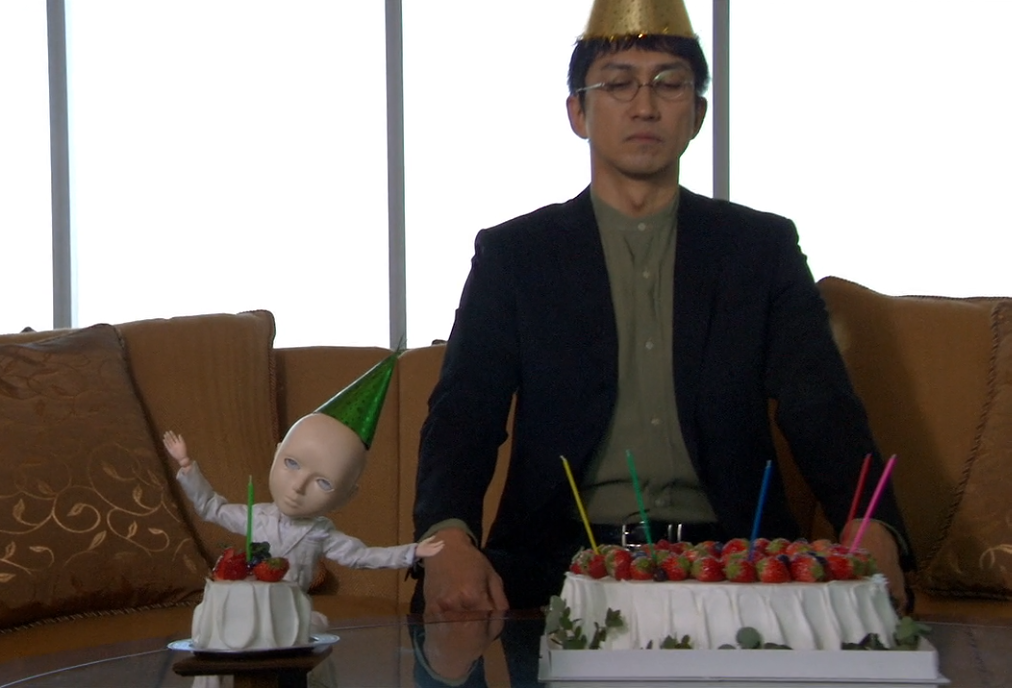I picked Kamen Rider OOO over any of the other extant Kamen Rider series because the monsters (the Greed) are a metaphor, and I tend to like it when anime monsters are concepts that can be hit with a sword. As it happens, the monster-as-metaphor aspect of OOO (pronounced Ooz) is, in my opinion, one of the worst parts about it, as the moral of many of its monster of the week stories ends up being something like “ambitious women need to be empathetic” and “wantonly giving people money leads to them becoming lazy and quit their jobs”.
Before picking apart the metaphors though, let me talk about why OOO is good. Which is because of them:
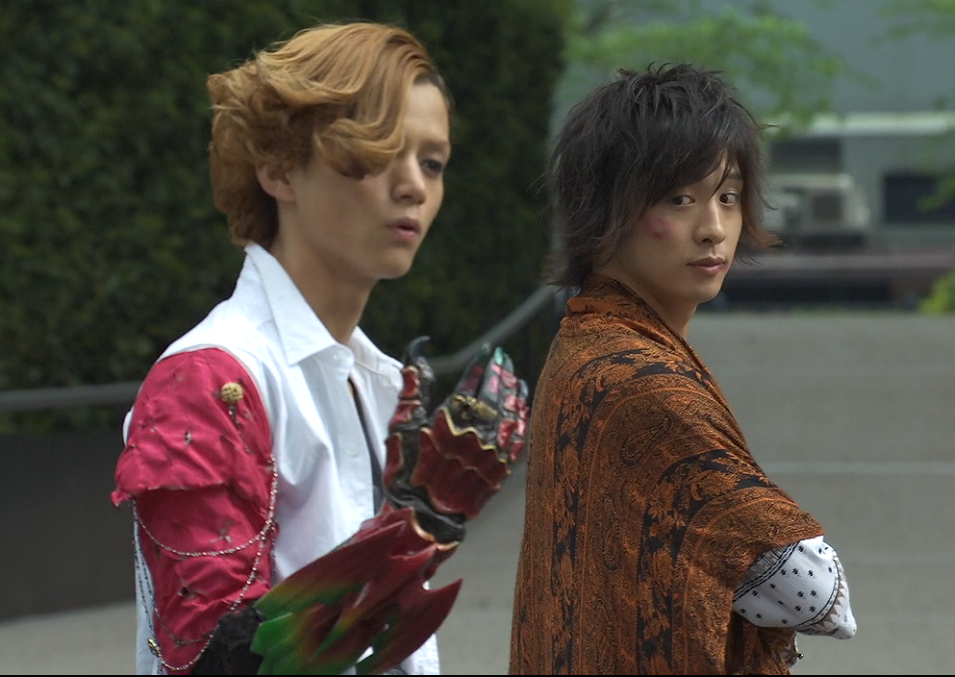
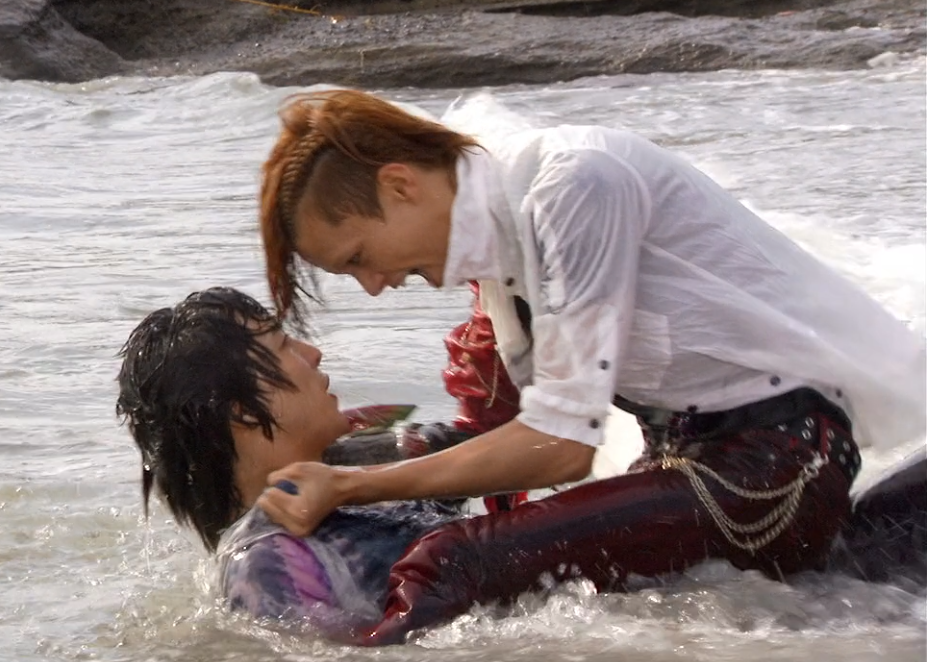
The thing that carried the show for me was the dynamic between an obviously queercoded pretty boy with One of the Haircuts Of All Time (Ankh) that sends a different pretty boy (Hino Eiji) into battle as though he’s some kind of Kamen Rider-themed Pokémon, at first with little regard for the latter’s safety.
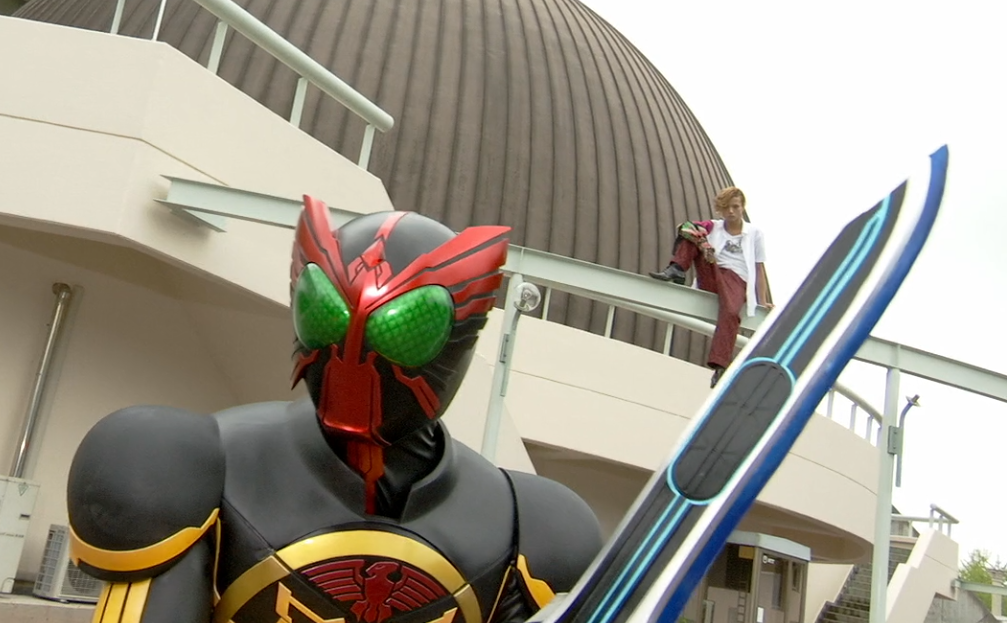
Kamen Rider OOO is a show where people betray one another A Lot, in contrived but very fun ways. Ankh is a Greed that revived as only a disembodied arm, possessing the body of a nearly-dead police officer to compensate for the lack of the rest of his body. As is Kamen Rider tradition, we can tell the officer is possessed because of the silly haircut he gained.
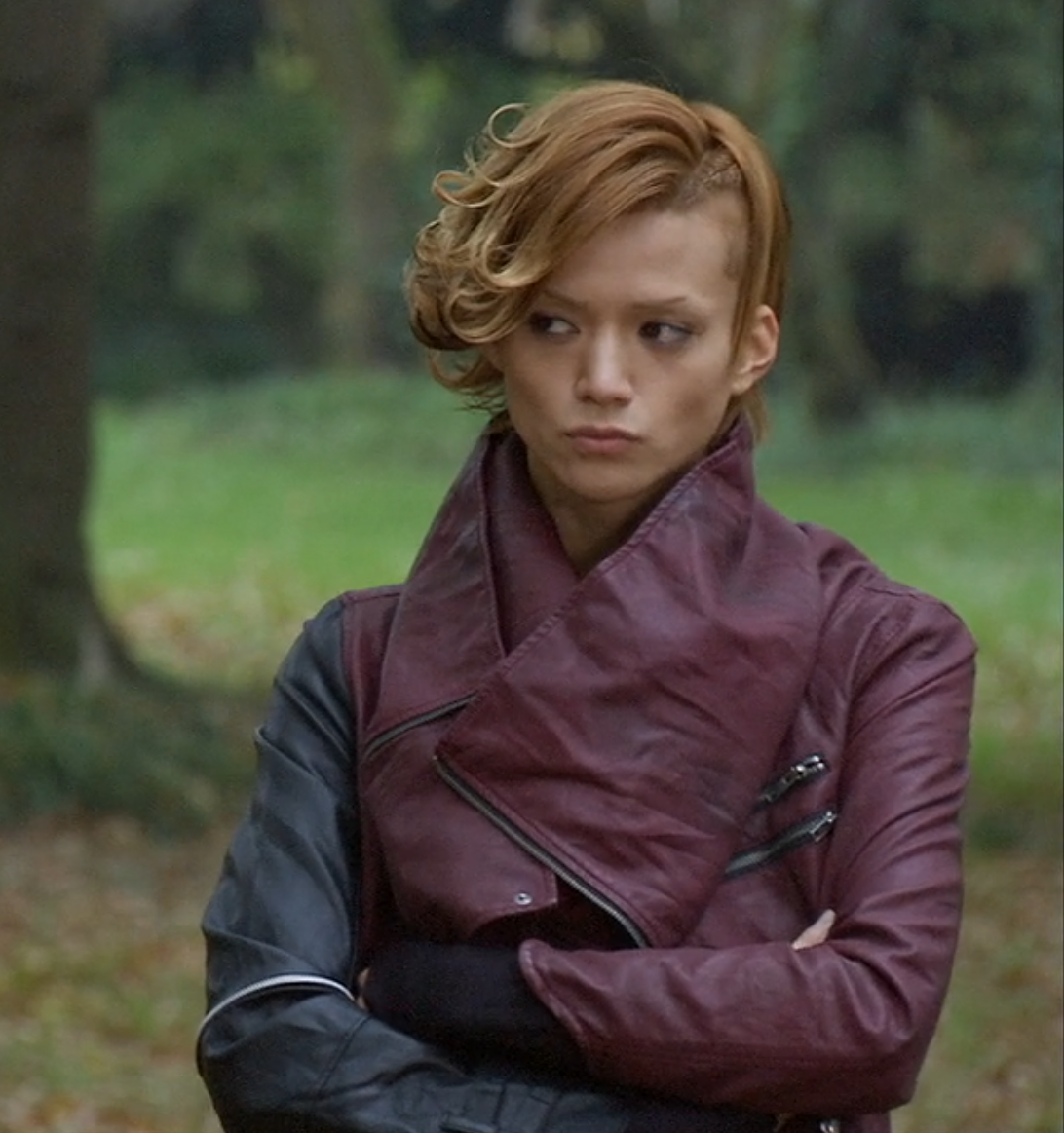
Ankh’s only drive at the start of the show is to collect the red medals he needs to regenerate the rest of his body, whereas Eiji simply wants to help people. Ankh is incredibly rude, inconsiderate and has an insatiable lust for ice cream while Eiji impossibly nice and polite, constantly running after Ankh to apologise for the latter’s conduct. It’s a good pairing.
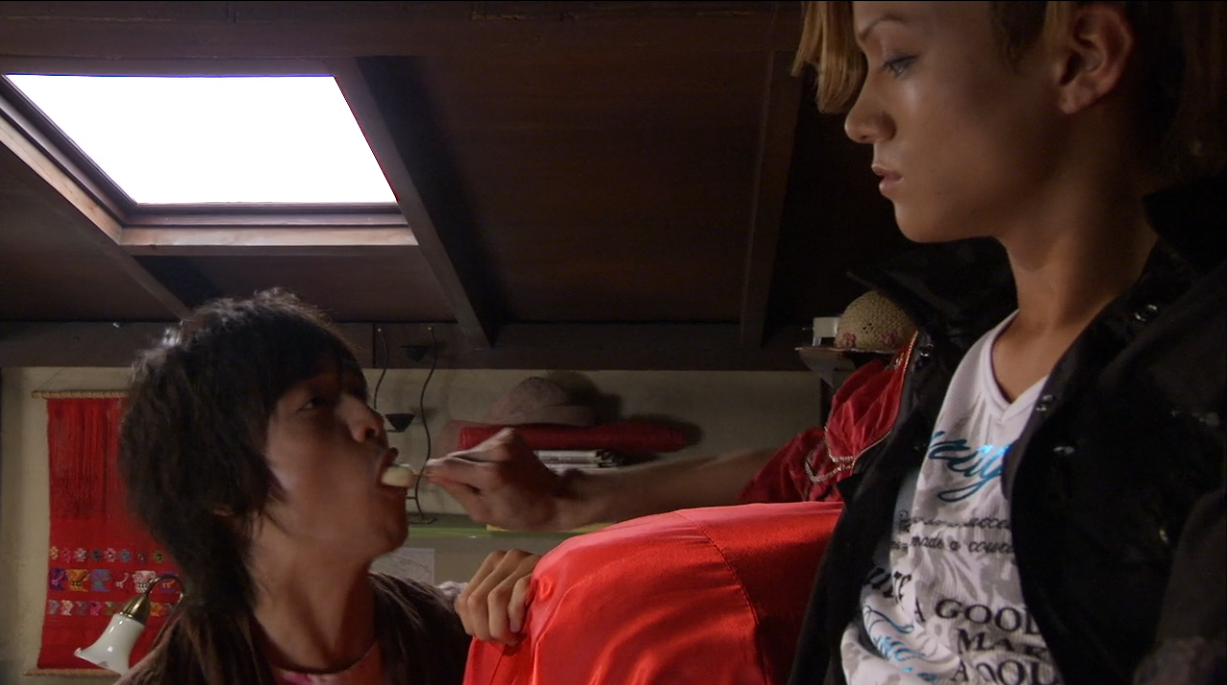
Ankh smirking before throwing Eiji off a building as a decoy just to get his hands on something he wants is great television, you cannot convince me otherwise. They make up after, insisting to the other Greed that this was not a breakup because there is nothing to break up. This dynamic keeps developing till the very end of the show. Throwing Eiji off a building is not even close to the worst thing Ankh does to him over the course of their relationship.
Now then, let’s move on to picking apart the show’s monster metaphors. The Greed are desire incarnate. Besides Ankh, there is four of them, they’re colour coded and predictably they look like homosexuals when disguised as humans. They birth monsters from the desires of humans to increase their powers. Since they’re nothing but desire incarnate (at first anyways), it does not take long for them to start betraying one another to gain an advantage.
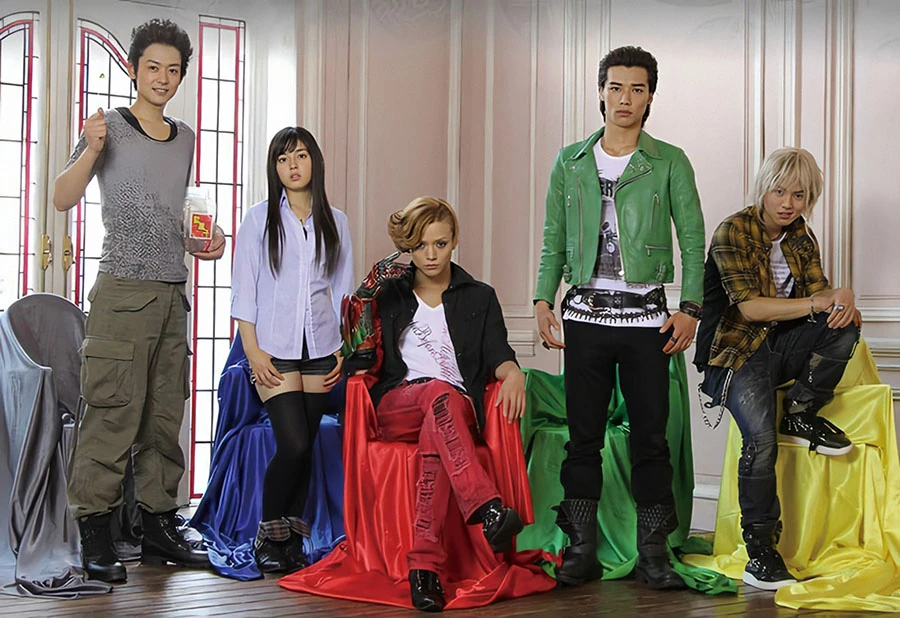
The monster of the week is some human’s dark desire given physical form through Greed intervention. This is where the show’s deep conservative tendency becomes most obvious. The central thesis is that desire by itself isn’t a bad thing, as long as people act on it in an appropriate manner, and “appropriate behaviour” typically means regulating one’s desires in a way that does not disrupt society’s status quo. Hence men who desire to be famous must work for their ambitions, but an ambitious female surgeon needs to learn the importance of empathy.
The latter was frustrating to watch, as at first glance the treatment she receives from her male colleagues and her boss appears to stem from gender discrimination, since other causes are absent. The revelation, however, is that her boss, who is also her father, prevented her from operating patients despite her great skill because he feared that she was not emotionally invested in their well-being enough to be a good doctor. Later on we meet a father who uses the monster born from his zealous righteousness to punish those he sees as criminals. He is prevented by the protagonist from beating up a corrupt politician and a businessman who is in the process of bribing him, and comes to see the error of his ways. He decides to return to his family and to become a defence attorney to “protect the happiness of others” i.e. to prevent other (nuclear) families from being broken up. The overall message then is that out of control desires can be regulated appropriately as long as people focus on things respectable society prefers them to focus on, especially the nuclear family.
We learn in the course of the show that the Greed do not have human sensory experiences and on an ontological level are incapable of feeling satisfaction or happiness. The things the Greed miss out on are in the show mainly represented by ice cream and the nuclear family. We see one of the Greed biting into a ball and saying it is delicious because he cannot tell the taste apart from candy. On the other hand Ankh, who inhabits a human body for most of the show, is eating ice cream in almost every episode. He’s insatiable (literally being desire incarnate, after all).

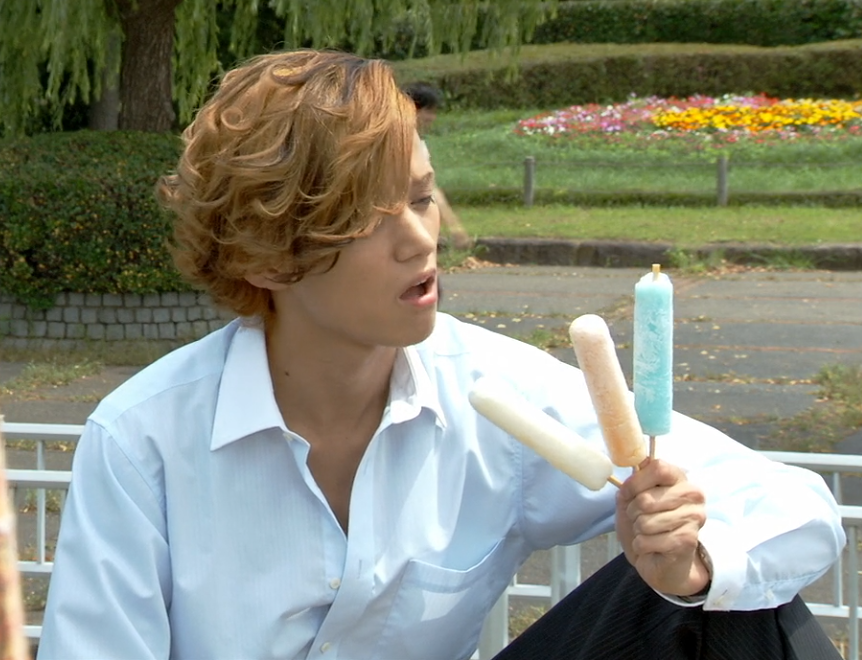
I don’t bring up the nuclear family just because I’m a commie that wants to destroy it (although I am and I do). The way that the show interacts with gender and families throughout is so terrible it becomes almost hypnotic. Mezool, the only female Greed, is shown to act like something of a mother figure to Gamel and occasionally breaks up fights between the others. Another character notes that her “playing home” with Gamel is counter to her essence as a Greed, which she all but confirms when she is fully restored. She drops Gamel like a rock and runs off to abduct the wives and children of happy families on the street, putting them in little watery eggs to be able to taste their happiness, which she is, once again, ontologically incapable of experiencing as a monster.
All in all, Kamen Rider OOO is a weirdly pro-nuclear family yaoi. Besides its gunning for the heterosexual agenda there is a lot to like about it, however. I haven’t even mentioned the Happy Birthday CEO, or the creepy doll, or the cute bromance between Goto and Date. Just a shame it also comes away from one of its arcs implying that domestic violence is probably fine as long as it doesn’t bother anyone else.
